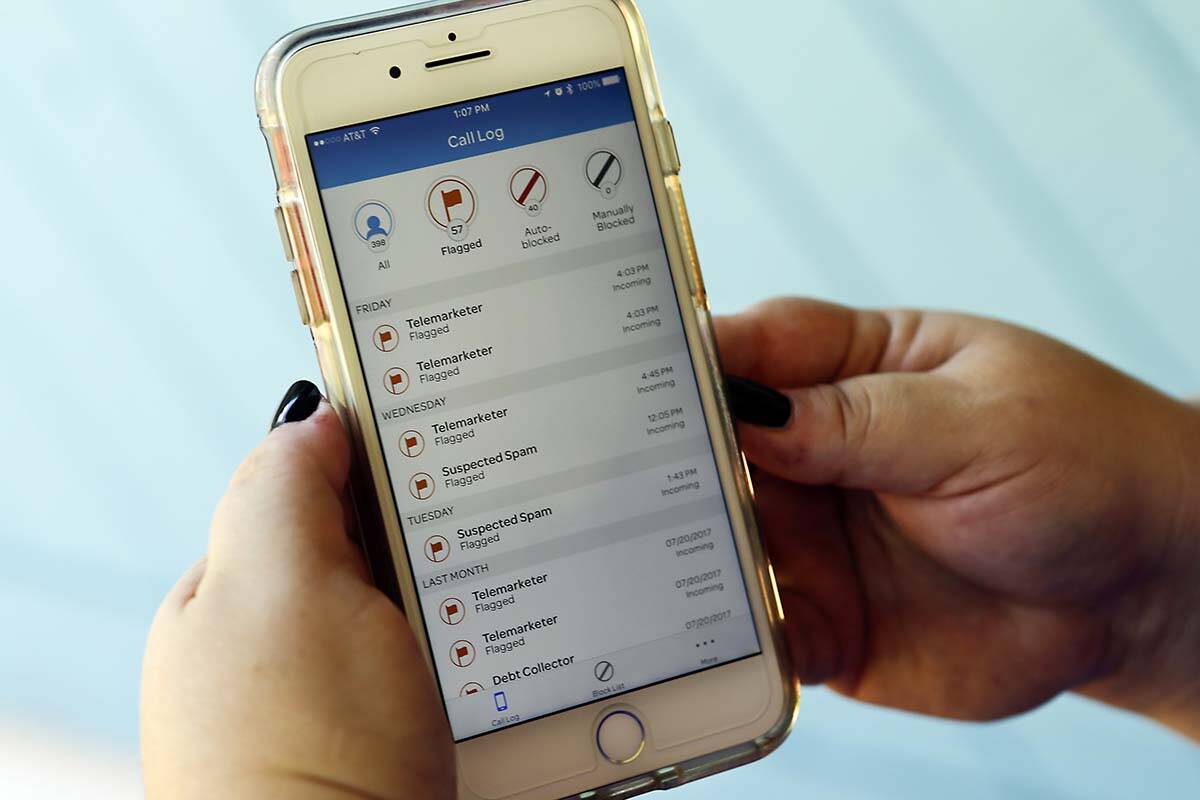NEVADA VIEWS: CCSD students: Let us keep our phones!
I hear the same phrase five times a day: “Please seal your phone in your designated pouch.”
And so for the first time in the history or the Clark County School District, tens of thousands of students are cut off — not just from their friends and family, but from a connection that brings comfort and security. But as our phones are sealed away, what else is being locked out?
As our schools fall apart, teachers struggle to make ends meet and students lack basic educational materials, I have to wonder: Why are we investing in phone pouches? The district’s recent decision to implement the phone pouch policy was intended to reduce distractions and enhance learning. However, the initiative, which has received significant backlash, highlights deeper problems within the district. During a time at which Nevada ranks near the bottom of the states in terms of educational attainment, the district is choosing to allocate funds toward a policy that hurts students.
First and foremost, the policy is a blatant misallocation of resources. The district spent nearly $3 million on pouches using pandemic relief funds. That money could’ve been used on far more pressing problems. For example, teacher pay in the district has been a persistent issue, with Nevada ranking near the bottom in terms of educator compensation. It’s no wonder that we rank 46th in the country for student-teacher ratio — there simply isn’t enough compensation to motivate district teachers to stay.
If that isn’t enough, schools themselves are crumbling. As a high schooler, I’m a witness to drains that flood bathrooms, sinks that don’t work (unless you’re putting your entire body weight on them) and a significant roach population. Within the first four days of my sophomore year, dozens of district public schools experienced air conditioning failures that would already be bad news even in a state that doesn’t have 100-plus degree days.
Two of my four first days in high school started with a schoolwide lockdown. Reflecting back, I can only imagine what it must have been like to be the parents of a freshman in a new environment, getting notified that their child could potentially be in danger but having no power over the situation. The stress and anxiety and fear … and if that situation happens now, parents must accept that their attempts to contact their kids won’t even get through.
The student response to this cellphone policy has been overwhelmingly negative, with many feeling like their voices have been ignored. A petition to repeal the reform got more than 25,000 signatures, a testament to the widespread discontent among students.
Frustrations aren’t just about losing access to a part of technology that’s built in our lives. They reflect a deeper concern about being silenced and stripped of autonomy. Why should we still attend school in a district that doesn’t care?
Nevada struggles with alarmingly low student attendance rates. In 2023, the absenteeism rate was the 49th worst in the nation, meaning huge amounts of students were already missing significant portions of the school year already last year. Now, as students are feeling disengaged or alienated by school policies, they’re more likely to skip class, and the phone policy risks exacerbating this problem. By taking away students’ access to their phones, district officials might inadvertently push more students to ditch school entirely.
Although proponents of these policies argue that it fosters a more focused learning environment, the sad reality is that it addresses a symptom instead of the root causes of distraction and disengagement in the classroom. Students aren’t distracted because they have phones, but because they are unmotivated and uninspired by an educational system that fails to fit their needs. Maybe instead of wasting millions of dollars on phone pouches, the district would do better to fix anything else.
So let’s call on our legislators to do the job they were elected to do: reform our education system. Not with policies that benefit the highest levels of administration while hurting everyone else, not by diverting much-needed resources away from critical issues, not by alienating the individuals the policies aim to help, but with policies that show our district can listen to our voices, reconsider priorities and focus on the real challenge facing our schools.
Robert Chondro is a student at Clark High School in Las Vegas.






















